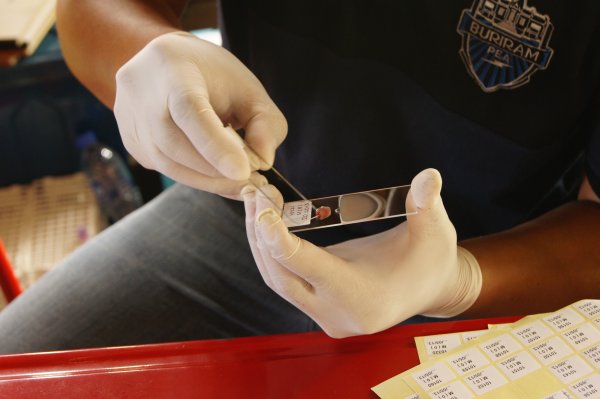Our work
The WorldWide Antimalarial Resistance Network (WWARN) – the malaria hub of IDDO – is a collaborative research network that is assessing antimalarial drug efficacy by providing policy makers with the evidence needed to plan effective strategies to contain resistance and ensure the most effective use of current and new drugs in the fight to eradicate malaria. A small increase in malaria drug efficacy could have a major impact by stopping millions of cases of recurrent malaria each year.

WWARN’s vision is to provide the information necessary to prevent or slow antimalarial drug resistance, in turn, reducing the number of people falling ill and dying from malaria.
We bring together experts from multiple research disciplines, from across the world to assess the evolution, epidemiology and public health impact of drug resistance. Our mission is to generate innovative tools and reliable evidence to inform the malaria community on the factors affecting the efficacy of antimalarial medicines. WWARN works with collaborators to optimise the efficacy of antimalarial medicines and treatment regimens, especially for vulnerable groups including pregnant women, infants and malnourished children, and provides evidence to inform the development of new antimalarial drugs.
WWARN provides comprehensive, timely, quality-assured evidence to track the emergence and spread of malaria drug resistance, and improve the efficacy of existing antimalarial medicines and new drugs in development.
Our international partnerships play an essential role in supporting the drive to fight malaria. Through this collaborative approach, the network will continue to provide valuable evidence to help save more lives and support the global effort to control, eliminate and eventually, eradicate malaria.
Structure of WWARN
- Scientifically independent, multidisciplinary, global network of malaria research experts
- Core team comprises a Secretariat; five Scientific Groups and four Regional Centres
- Connected to the broader malaria research community through a Board and Scientific Advisory Committee
Our key activities
Assure the quality of antimalarial drug efficacy
- We provide the malaria community with a reliable and standardised data collection platform to facilitate data sharing and pooled data analyses by WWARN study groups and other research collaborations. These findings provide evidence for policy makers and drug developers to optimise the therapeutic life of existing and new antimalarial drugs
- We collaborate with laboratories across the world to provide support and advice to improve the analysis of antimalarial drug regimens during clinical trials, and in turn, enhancing the overall quality of the research data captured
Support the international malaria research community
- We develop freely available guidance, easily accessible tools and training materials to support researchers in malaria endemic countries with the collection, analysis, interpretation, and dissemination of high quality evidence on malaria drug efficacy
- We create visualisation maps and tools to highlight research gaps and opportunities in our understanding of antimalarial drug resistance to help and inform clinical trial development and research analysis
Advocacy
- We aim to increase awareness and understanding of the need for effective tracking of the emergence and spread of antimalarial resistance
- We develop strategic partnerships with other advocacy organisations which aim to increase awareness of malaria in the public health and policy making community
- We raise awareness of the need for data sharing in the public health arena

